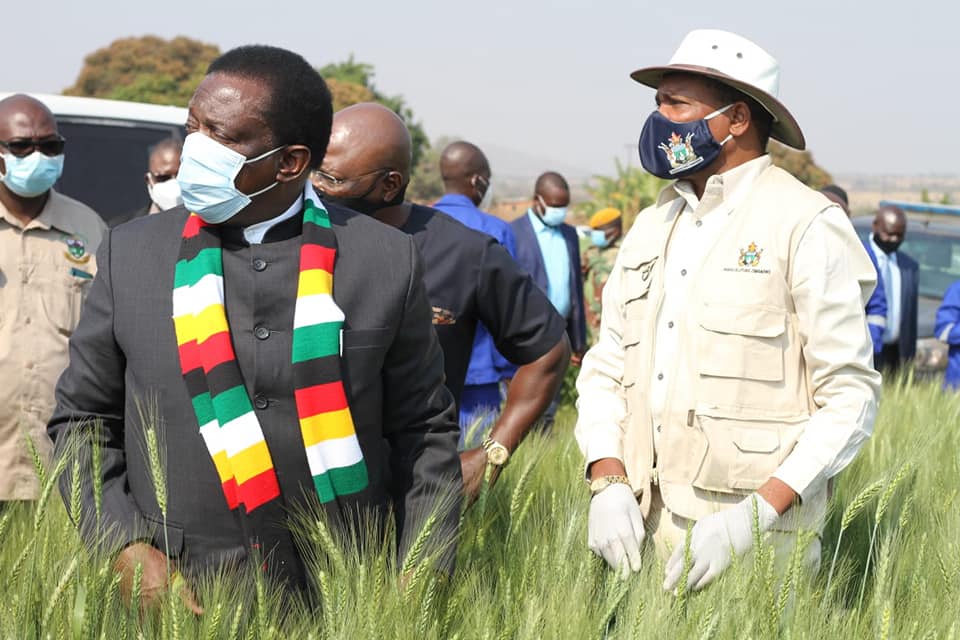Agriculture Reporter
The country is experiencing an agricultural revolution, with this season’s crop yield expected to surpass the previous crop yield records.
In a statement yesterday, President Emmerson Mnangagwa said the expected bumper harvest will once again position Zimbabwe as the bread basket of the continent.
“In Zimbabwe, between 2020 and 2021, crop yield is expected to increase by 199 percent for maize harvest, 128 percent for traditional grains and 94 percent for cotton harvest. Zimbabwe, we are having an agricultural revolution. Once more shall we become the breadbasket of Africa,” said President Mnangagwa.
Former United Nations Resident Coordinator to Zimbabwe, Bishow Parajuli has since congratulated the country for the positive developments in the agricultural sector.
“Fantastic news. Congratulations and best wishes,” tweeted Parajuli yesterday.
Head of European delegation in Zimbabwe Timo Olkkonen said the agriculture revolution being experienced in the country will help to eradicate poverty.
“This is excellent news and hopefully will soon alleviate the humanitarian situation,” said Olkkonen.
Meanwhile, the Second Round Crop and Livestock Assessment report has indicated that the country is expected to harvest 2,7 million tonnes of maize during the 2020/21 summer cropping season, the highest yield in 20 years.
According to the report gleaned by this publication, the country is expected to have a surplus of over 820 000 tonnes of cereal this marketing season, the highest yield since the 2000/01 season.
The assessment report also revealed that cereal production is estimated at 3 075 538 tonnes against a national cereal requirement of 1 797 435 tonnes for human consumption and 450 000 tonnes for livestock.
The report also indicated that estimated maize production stands at 2 717 171 tonnes, which is a significant rise from the 907 628 tonnes produced in the 2019/2020 season. The assessment shows that the country would be food secure for the next two seasons.
The New Dispensation has introduced favourable programmes such as the Pfumvudza concept, Presidential Input Scheme and the Smart Command Agriculture to rejuvenate and increase production in the agriculture sector that has been burdened by years of illegal sanctions. The bumper harvest also demonstrates that with good rains, Zimbabwean farmers are hard-working and also dispels narratives by hostile elements of a food crisis in the country occasioned by corruption and misgovernnance.




